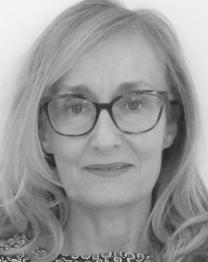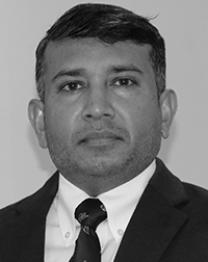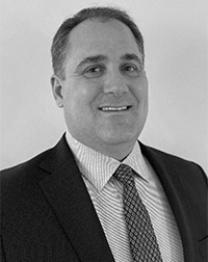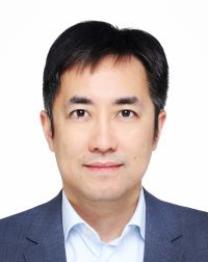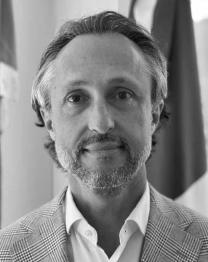Key speakers
Speakers (A-Z)
Jane Korinek is a Senior Economist and Senior Trade Policy Analyst in the Trade and Agriculture Directorate of the Organisation for Economic Cooperation and Development OECD.
Her recent policy research has examined how trade impacts women and men differently, and how trade policies can support women’s economic empowerment. Her other relevant policy research has been in the areas of global value chains, local content policies, export restrictions, trade and the circular economy, benefits of good regulation in the extractive industries, mining services and their competitiveness, impacts of regional trade agreements, trade costs and short-term trade finance.
Jane is a Canadian and American national and holds an undergraduate degree in Economics from Duke University and graduate degree in International Economics from Stanford University.
Eranda Kotelawala was appointed Chief Executive Officer of Solomon Islands Ports Authority in February 2017. Prior to that, he was the COO of Fiji Ports Corporation Limited managing five major ports of entry into Fiji. Eranda brings 25 years of management experience predominantly in shipping and several other industry verticals from Sri Lanka, United Kingdom, South Africa, Sultanate of Oman, and Singapore.
He has consulted on Business Process Re-engineering Projects in major Port projects in the South Pacific, the Gulf Region and South Africa. Eranda holds a master's degree in management from Aberdeen Business School and further specialized in Business Process Re-Engineering and Franchise Business in Entrepreneurship.
He is a Chartered Fellow of Chartered Institute of Logistics and Transport UK, Fellow of Chartered Management Institute UK, Associate Fellow of The Nautical Institute UK, He is also a full member of Institute of Management Consultants Australia. Eranda is also the current IAPH (International Association of Ports and Harbors) Vice President for Southeast Asia and Oceania.
Joe Kramek, President and CEO of the World Shipping Council, was a U.S. Coast Guard commissioned officer for 28 years, and most recently served as the Chief of Maritime, International and Environmental Law where he led the U.S. Delegation to the International Maritime Organization's (IMO) Legal Committee.
He also served as Chief of the Coast Guard's Legislative Affairs program. Joe was selected as a Federal Executive Fellow at the Brookings Institution where, in 2013, he completed one of the first research projects on maritime cyber security.
He was also detailed to the Department of Justice for two years as an Admiralty Trial Attorney and served four years at sea as a deck watch officer.
Joe has been admitted to the bar in Florida and the U.S. Supreme Court. He is a member of the U.S. Maritime Law Association and currently serves as the Vice Chair of the Committee for Autonomous vessels.
Ma Li is Vice President of China International Exhibition Center Group (CIEC).
Mr. Ma is specialized in Exhibition Industry. In CIEC, he is in charge of the Business Groups of Project Development, Exhibition Organization and Data Service. In recent years, he has led the team making major achievements, economically and socially, in projects such as China International Supply Chain Expo, ITMA ASIA + CITME, CIMT, Auto China, Motor China, Print China, Cafe Show China.
Before his career in CIEC, he held the position of Director of Business Division, Dept. of Exhibitions and Events for China Chamber of International Commerce, and also Vice Chairman of CCPIT-Hainan.

Dr. Mikael Lind is the world's first (adjunct) Professor of Maritime Informatics engaged at Chalmers and Research Institutes of Sweden (RISE) and well-known expert in the field of digital collaboration and innovation frequently surfaced in international trade press.
He is an expert contributor at World Economic Forum, Europe's Digital Transport Logistic Forum (DTLF), and UN/CEFACT. He is co-editor of the first two books on Maritime Informatics, co-author of the Practical Playbook for Maritime Decarbonisation, co-editor of the book Maritime Decarbonization, and co-initiator and sponsor of the Virtual Watch Tower (VWT) network initiative.
He has also been instrumental in setting up international ecosystem collaborations as well as co-founding collaborative decision making (CDM) initiatives for different transport and logistics settings.
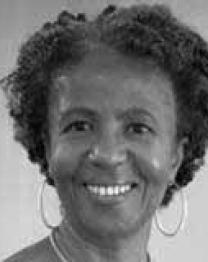
Michele Lowe is the Senior Co-ordinator for Hemispheric and Bilateral Trade relations at the Caribbean Community (CARICOM) Secretariat.
She has over 25 years’ experience in international trade policy and trade negotiations. She also has responsibility for the Secretariat’s WTO work programme on Trade Facilitation. In this capacity, she is responsible for monitoring, coordinating and mobilising technical assistance and capacity building (TACB) support for regional implementation of the WTO Agreement on Trade Facilitation (TFA) by CARICOM WTO Members.
Miss Lowe led the Secretariat’s team that conceptualized and developed the CARICOM Strategy for Regional implementation of the TFA, in collaboration with the World Bank Group. She was also team leader on the establishment of the CARICOM Regional Committee on Trade Facilitation (RCTF).
Inspired by multilateralism and regional cooperation, Martin is spearheading the Global Network of Regional Sustainable Energy Centres (GN-SEC) program and is managing a portfolio of sustainable energy and climate technology projects in small island developing states (SIDS) and least developed countries (LDCs).
Before joining UNIDO in 2010, he was responsible for the energy program at the Austrian Development Agency (ADA) and worked at the development cooperation department of the Austrian Federal Ministry of European and International Affairs.
Martin obtained Master degrees on renewable energy technologies and political science.
Jeffrey Maganya is a seasoned humanitarian and development professional with over 30 years of experience in Africa. As the Director of Programmes and Influencing at Oxfam International in Africa, he leads strategic initiatives to bolster food security for marginalized communities. His experience spans the management, development, implementation, and evaluation of comprehensive regional and national programs aimed at addressing poverty and inequality.
Previously, as a Regional Advisor for Social Protection in Oxfam, he enhanced strategies for social protection, livelihoods, and resilience to combat the adverse effects of extreme weather and climate changes.
Jeffrey played a pivotal role in collaborating with the Government of Kenya to develop the Hunger Safety Net Programme, one of Africa's largest food security initiatives, which provides cash transfers to 300,000 food-insecure households. His background combines hands-on program management with strategic oversight, directly interfacing with food supply chains that impact the needs of the world's most vulnerable populations.
Giuseppe is Deputy Director for LAC and Representative of the UNOPS Office in Mexico (2021).
He started working at UNOPS 28 years ago. Throughout this period, he's served as Associate Coordinator for the Urgent Interventions Project in Bosnia and Herzegovina (1998-1999), Associate Portfolio Manager at UNOPS Guatemala (2000), Director of the Operations Center at UNOPS El Salvador (2001-2007), Representative and Director of the Operations Center at UNOPS Peru (2008-2010) and Deputy Regional Director and Director Hub of Operations of Panama in the UNOPS Regional Office (2011-2015).
Since 2016, he was appointed Deputy Regional Director for Latin America and the Caribbean (LAC) and Representative of the UNOPS Office in Argentina (2016-2021).
Giuseppe has a BA in Economics from Gabriele University D'Annunzio, and an MBA from the University of Barcelona and School of Business Administration.
John Manners-Bell is a highly experienced author, speaker and thought leader with a career spanning research, operations, strategy and marketing within the global supply chain industry.
He is Founder and CEO of consultancy Ti Insight which since 2002 has provided market intelligence to a range of blue chip customers and governmental organisations.
In 2021 he founded the Foundation for Future Supply Chain dedicated to improving the understanding of sustainability, risk, innovation, ethics and public policy in the industry. John was formerly Chair of the Logistics and Supply Chain Global Agenda Council of the World Economic Forum (WEF) and an Honourable Visiting Professor at London Metropolitan University.
He has authored six books, most recently 'The Death of Globalization', and the award winning 'Supply Chain Risk Management' now in its fourth edition.





